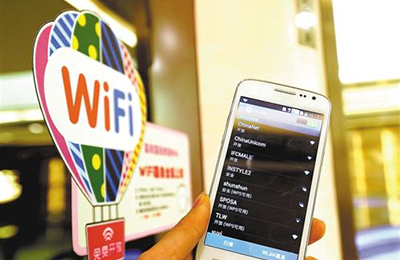
 As a public benefit project, public free WIFI has become the standard for building "smart cities" in many places. In many cities, the coverage rate of the government's public free WIFI is already very high, but the actual effect is not ideal. Problems such as inability to connect, slow network speed, and unstable signal have been criticized by citizens.
As a public benefit project, public free WIFI has become the standard for building "smart cities" in many places. In many cities, the coverage rate of the government's public free WIFI is already very high, but the actual effect is not ideal. Problems such as inability to connect, slow network speed, and unstable signal have been criticized by citizens.
The government's public free WIFI is not easy to use, which is almost a common phenomenon in China. Even many citizens don't even know that there is still a government public free WIFI, which also confirms its poor reputation. It needs to be emphasized that when it is said that it is free WIFI, in fact, the government department pays the operator. Spending money on free WIFI, but the actual use effect is not good, is tantamount to a loss and waste.
In this regard, the competent authorities often think that it is because "the coverage of each AP is limited"; operators say that "more and more users are accessing, and there are more and more areas where high-density user groups are formed." These statements cannot be said to be unreasonable, but technical shortcomings alone may not be enough to explain the problem. Otherwise, the free WIFI provided by the government and the free WIFI provided by the business are also "free lunch", why is the "taste" so different?
The government's public free WIFI is not easy to use, so we need to pay attention to the following backgrounds: first, under the "government-business cooperation" model, for the construction unit, all that needs to be done is the coverage task, and they do not care about the effect of public use; second, , the operators participating in the cooperation have no motivation to make free WIFI particularly useful, otherwise no one will buy mobile phone traffic, which is in contradiction with their vital interests. Third, there is neither specific assessment criteria nor effective public supervision on whether public WIFI is good or bad.
To put it bluntly, the real core reason is that the government's public free WIFI is not easy to use. The real core reason is that the use of public funds is inefficient. Privately spend money on WIFI, not only focus on price but also on quality, because it is "spending your own money to do things for yourself", even if it is free for others to use, it is still profitable, either for attracting customers or for publishing Advertising; on the contrary, public free WIFI is likely to be neither really concerned about price nor quality, essentially falling into the inefficiency of the "tragedy of the commons".
Clearly, the government's public free WIFI is not easy to use, and it is not difficult to understand why it is a common phenomenon in China. To change this phenomenon, in addition to the existing "government-business cooperation" model, we should perhaps try more market-oriented operation models of "business-business cooperation", allowing businesses to provide free WIFI to the public based on their own business interests. This is not a fool's dream. Public free WIFI endorsed by the government is also a scarce resource. If it can be operated in a market-oriented manner such as advertising returns, many companies will be willing to pay for the construction of public free WIFI.
Providing free WIFI in a market-oriented way can not only reduce the burden on taxpayers, but also ensure the quality of free WIFI. Because, "spending your own money to do things for yourself" is definitely more efficient than "spending other people's money to do things for others". To improve the quality of public WIFI, technology is not a problem, nor is funding a problem. How to mobilize more efficient funds to choose more reliable technology is the problem.